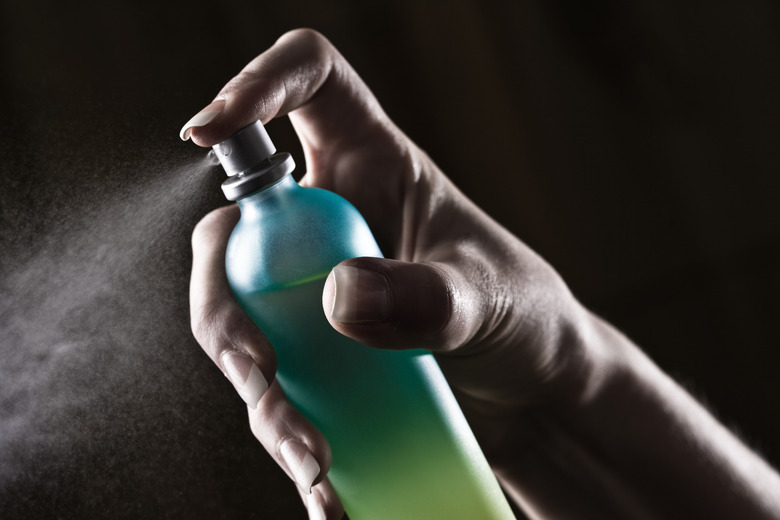Does The Density Of A Volatile Liquid Change With Evaporation?
When some people hear the phrase "volatile liquid," they might think that the liquid is explosive or dangerous. However, the defining characteristic that makes a liquid like alcohol volatile is that it has a low boiling point, which also means it evaporates easily at room temperature. You might think that because a liquid evaporates, the loss of molecules causes the remaining molecules to become less tightly packed, and therefore less dense, but it doesn't.
A Relative Loss
A Relative Loss
You calculate density by dividing a substance's mass by its volume. For example, a sample with a mass of 500 kilograms and a volume of 500 cubic meters will have a density of 1 kilogram/cubic meter: 500 / 500 = 1. When that liquid evaporates, it loses molecules from its surface, which causes both its mass and volume to decrease proportionally, molecule by molecule. If half of that sample evaporated, its mass would then be 250 kilograms and its volume would have also lowered to 250 cubic meters. Its density would still be 1 kilogram per cubic meter: 250 / 250 = 1.
Cite This Article
MLA
Cascio, Christopher. "Does The Density Of A Volatile Liquid Change With Evaporation?" sciencing.com, https://www.sciencing.com/density-volatile-liquid-change-evaporation-13494/. 24 April 2017.
APA
Cascio, Christopher. (2017, April 24). Does The Density Of A Volatile Liquid Change With Evaporation?. sciencing.com. Retrieved from https://www.sciencing.com/density-volatile-liquid-change-evaporation-13494/
Chicago
Cascio, Christopher. Does The Density Of A Volatile Liquid Change With Evaporation? last modified March 24, 2022. https://www.sciencing.com/density-volatile-liquid-change-evaporation-13494/
